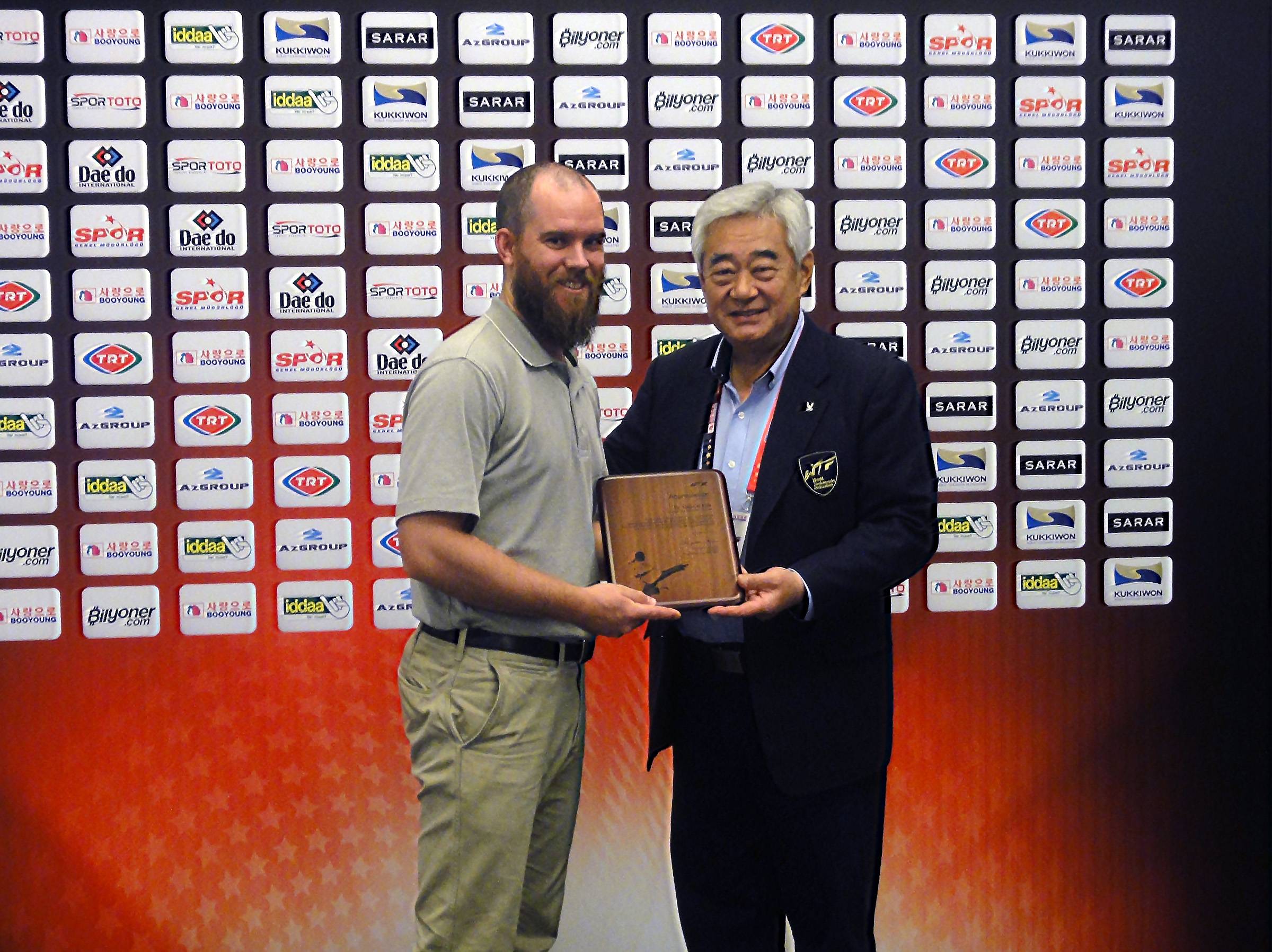Gabriel Fife's Research Helps Lead Para-Taekwondo to the World Stage
Dr. Fife's Research helps lead Para-Taekwondo to the World Stage

(San Marcos, TX | October 23, 2015)
When people hear martial arts, icons such as Bruce Lee and Chuck Norris performing high-rounded kicks come to mind. But what about non-traditional athletes? Through his research, assistant professor Gabriel Fife is helping to bring martial arts to diversified groups.
Over the past few years, the World Taekwondo Federation has been working to develop the sport for people with various disabilities, including those with physical and intellectual ones.
For the past two years, Fife has been tracking injuries through an injury surveillance program at Para-Taekwondo competitions—most recently at the 2015 World Para-Taekwondo Championship in Samsun, Turkey. Para-Taekwondo competitions are competitions among those with physical disabilities such as limb injuries and amputations. The research collected from the program helps Fife understand how to better prevent debilitating injuries caused from contact sports like Taekwondo. “As these athletes already work against a great deal of adversity, my colleagues and I are aiming to catch injuries that post a high risk of additional disability and recommend prevention programs to uphold their health,” said Fife.
Additionally Fife’s research consists of evidence-based classification for full-contact sparring and classification research for people of different intellectual impairments. Developing classifications between both populations helps ensure fair competition. “As you can imagine, there are various people who come to compete at these events and they come with a whole bunch of different disabilities,” said Fife. “Not all physical impairments are the same and our hope is to develop a methodology that allows for the fair grouping of athletes so they can compete against athletes with similar disabilities as themselves.” Fife was able to conduct further work on classifications in Ecuador at the 2015 INAS Global Games earlier this fall.
Along with his colleagues, Fife presented all of his research at the International Paralympic Committee (IPC) VISTA Conference held in Girona, Spain. The IPC serves to organize and include people with disabilities of all backgrounds into athletic competitions around the world. Now, thanks to the research from Fife and his colleagues’, one new sport—Para-Taekwondo—will be added to an important and high-profile competition: the 2020 Paralympic Games.
Through these achievements, it is with no surprise that in September Fife received special recognition by the World Taekwondo Federation for all of his research advancing the sport of Taekwondo to all athletes.